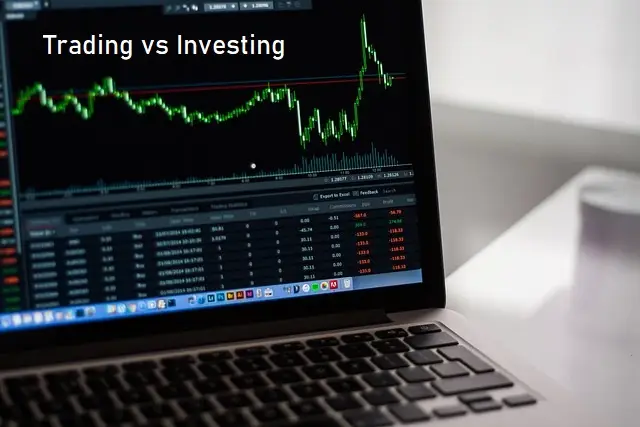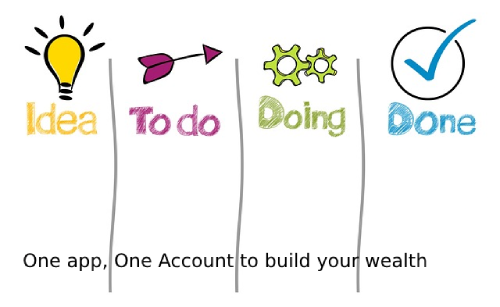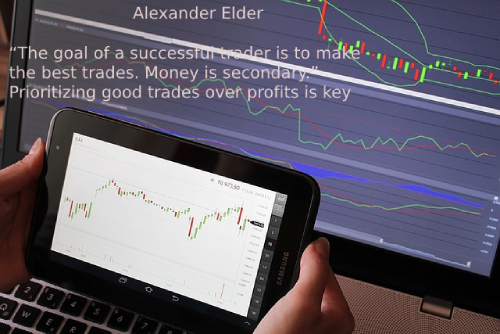Trading vs Investing Which is Better

Explore the key differences between Trading vs Investing Which is Better.
Investing:
- Time Horizon: Investors take a longer-term approach. They hold assets with the goal of achieving steady growth over many years.
- Mindset: Investors think like owners. They focus on the business’s performance rather than short-term stock price fluctuations.
- Risk Tolerance: Investors tend to be risk-averse and are willing to ride out short-term market fluctuations.
- Strategy: They buy and hold, often for retirement or other long-term goals.
- Ownership: Investing involves owning financial assets (e.g., stocks, bonds, real estate).
Pros:
- Long-Term Growth: Investing allows you to benefit from long-term market growth. Over time, well-chosen investments tend to appreciate.
- Diversification: Investors can spread risk by diversifying their portfolio across different asset classes (stocks, bonds, real estate, etc.).
- Passive Income: Some investments (like dividend-paying stocks or rental properties) generate passive income.
- Tax Benefits: Certain investment vehicles offer tax advantages (e.g., retirement accounts).
Cons:
- Volatility: Markets can be volatile, and investment values may fluctuate. Patience is crucial.
- Liquidity: Some investments (e.g., real estate) are less liquid, meaning it may take time to sell them.
- Time Commitment: Researching and managing investments requires time and effort.
- Market Risk: External factors (economic downturns, geopolitical events) impact investment performance.

Trading:
Time Horizon: Traders use short-term strategies to maximize returns daily, monthly, or quarterly.
Mindset: Traders aim for quick profits. They focus on market timing and price movements.
Risk Tolerance: Traders are more risk-tolerant and may not hold positions for long.
Strategy: They actively buy and sell, often speculating on market fluctuations.
Ownership: Trading doesn’t necessarily involve ownership; it’s about speculating on price changes.
Pros:
- Quick Profits: Traders aim for short-term gains, capitalizing on price fluctuations.
- Flexibility: Traders can adapt to changing market conditions and adjust strategies accordingly.
- Liquidity: Trading provides more liquidity; positions can be closed quickly.
- Active Involvement: If you enjoy analyzing charts and market data, trading can be engaging.
Cons:
- High Risk: Trading involves higher risk due to frequent buying and selling.
- Emotional Stress: Rapid market movements can be stressful for traders.
- Transaction Costs: Frequent trades lead to higher transaction fees.
- Market Timing: Timing the market accurately is challenging.

Remember, the choice between trading and investing depends on your financial goals, risk tolerance, and time horizon. Some people combine both approaches to balance risk and potential returns.
If you’re patient and seek long-term growth, investing may be better. Traders, on the other hand, thrive on short-term opportunities. Remember, both approaches have their merits – choose based on your goals and risk tolerance.
Upstox: Empowering Your Trading Journey!
🚀 Are you ready to take your trading to the next level? Look no further than Upstox! Here’s why you should choose us:
- Zero Brokerage on Delivery Trades: Keep more of your profits with zero brokerage charges on delivery trades. It’s your money – why pay unnecessary fees?
- Lightning-Fast Execution: Don’t miss out on opportunities! Our robust platform ensures lightning-fast order execution, so you’re always ahead of the curve.
- Advanced Charting Tools: Analyze trends, spot patterns, and make informed decisions with our powerful charting tools. Whether you’re a beginner or an expert, we’ve got you covered.
- Mobile App Convenience: Trade on the go with our intuitive mobile app. Stay connected to the markets, even when you’re on the move.
- Educational Resources: Learn from the best! Access educational content, webinars, and expert insights to enhance your trading skills.
Join Upstox today and experience trading like never before. 📊💡